Why Does Your Cat Hide at Deworming Time? Tips for Easier Handling
Understanding Your Cat’s Hiding Instinct During Deworming
Cats often vanish at deworming time due to instinctive fear responses. They associate the process—handling restraint, unusual smells (like topical solutions), or past discomfort—with perceived threats. This behavior stems from:
Negative Association: Past unpleasant experiences create lasting memories.
Heightened Senses: Chemical odors from medications trigger avoidance.
Loss of Control: Restraint activates their prey-animal survival instincts.
Pain Sensitivity: Some experience temporary GI discomfort post-treatment.
Practical Strategies for Stress-Reduced Dewworming
Preparation is Key
Familiarize Early: Leave the dewormer packaging near their bed days prior.
Positive Conditioning: Pair handling sessions with high-value treats without medication initially.
Timing Matters: Schedule after play when they’re naturally relaxed.
Handling Techniques That Work
The Towel Wrap (Purrito Method):
Drape a large towel over your cat, gently wrapping limbs snugly—not tightly.
Expose only the head and neck for application. This reduces squirming and provides security.
Minimal-Restraint Positioning:
Place cat on non-slip surface (e.g., rubber mat).
Apply from behind/side, never looming over them.
Distraction Mastery:
Use lickable treats (e.g., squeeze tube paste) during application.
Employ pheromone sprays (Feliway®) on towels 15 minutes prior.
Post-Application Calming
Offer Immediate Reward: Give favorite food right after treatment.
Passive Ignoring: Allow them to retreat without pursuit—let them decompress.
Environmental Access: Ensure hiding spots (covered beds, boxes) are nearby.
When Professional Help is Needed
Consult your vet if:
Aggression prevents safe handling.
Hiding persists >24 hours post-treatment.
Physical symptoms (vomiting, lethargy) occur. Some cats genuinely benefit from in-clinic administration or prescription anti-anxiety aids for high-stress cases.
Building Positive Long-Term Associations
Consistency transforms tolerance:
Monthly “Practice” Sessions: Simulate handling without medication monthly.
Designated Treats: Reserve special treats only for medication events.
Choice-Based Interactions: Let them approach the medication towel voluntarily.
Implementing these science-backed techniques significantly reduces avoidance behaviors over time. By respecting feline communication signals—and pairing medication with predictable positive outcomes—you transform deworming from a feared event into manageable routine care. Always prioritize low-stress handling to ensure consistent parasite prevention compliance.
Explore Dogs
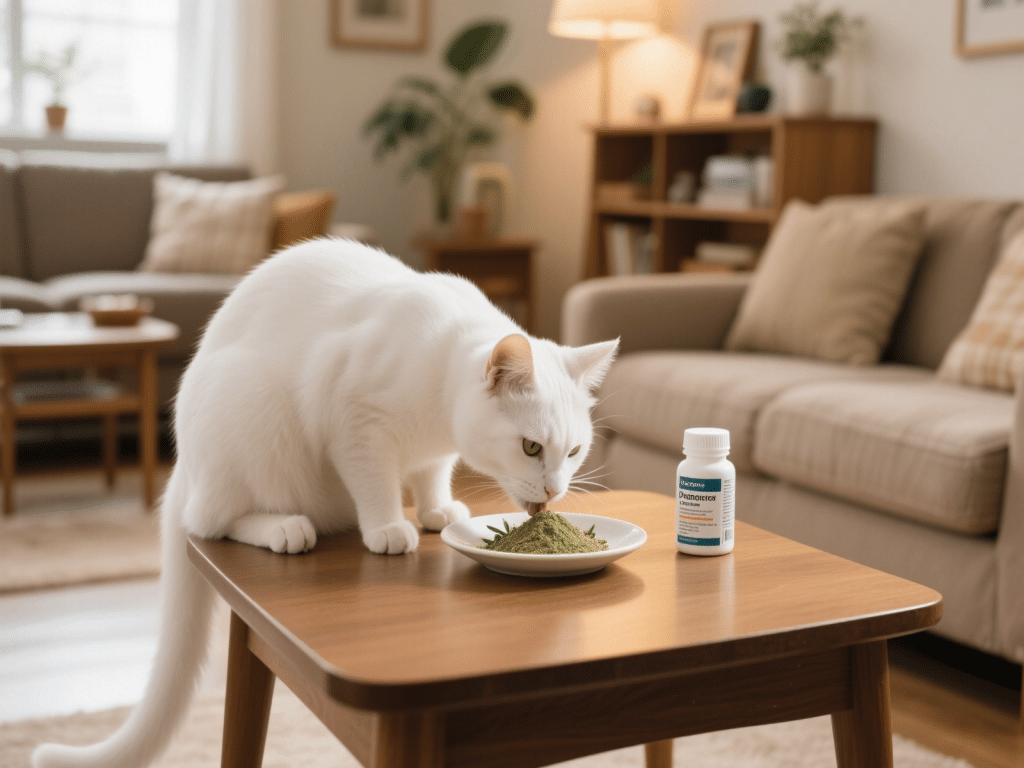
Natural vs Prescription Cat Dewormers: Which Is Right?
IntroductionCat owners seeking parasite control often weigh natural remedies against prescription de...
Read More
Multi-Cat Household Deworming: Preventing Parasite Spread
IntroductionIn multi-cat households, parasites can spread rapidly between cats, resulting in recurri...
Read More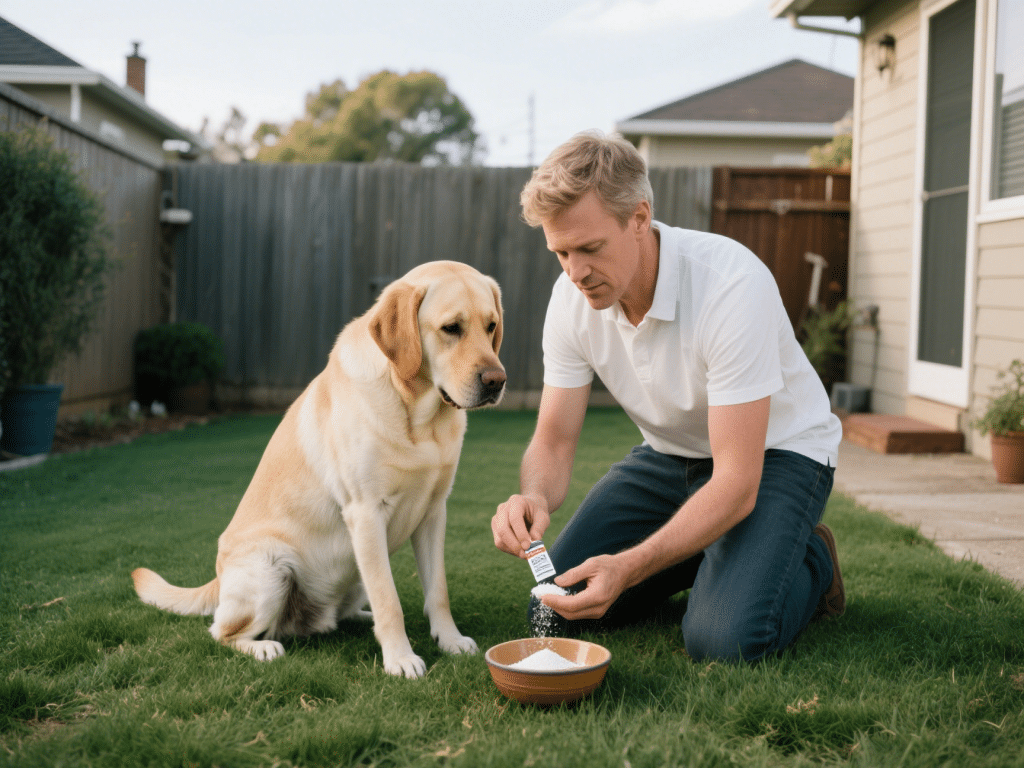
How Often to Deworm Your Kitten: A Complete Guide
IntroductionKittens often acquire intestinal parasites via the mother or the environment. Regular de...
Read More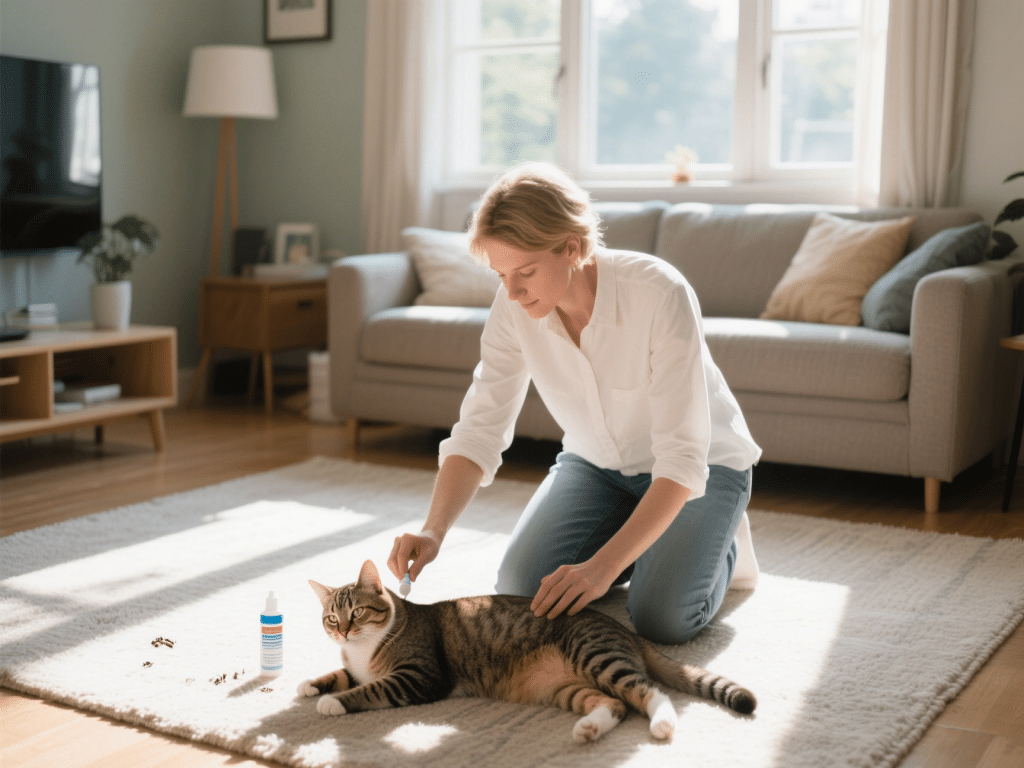
Choosing the Right Cat Dewormer for Flea-Infested Homes
IntroductionFlea infestations pose dual threats to cats: itching, dermatitis, and tapeworm exposure ...
Read More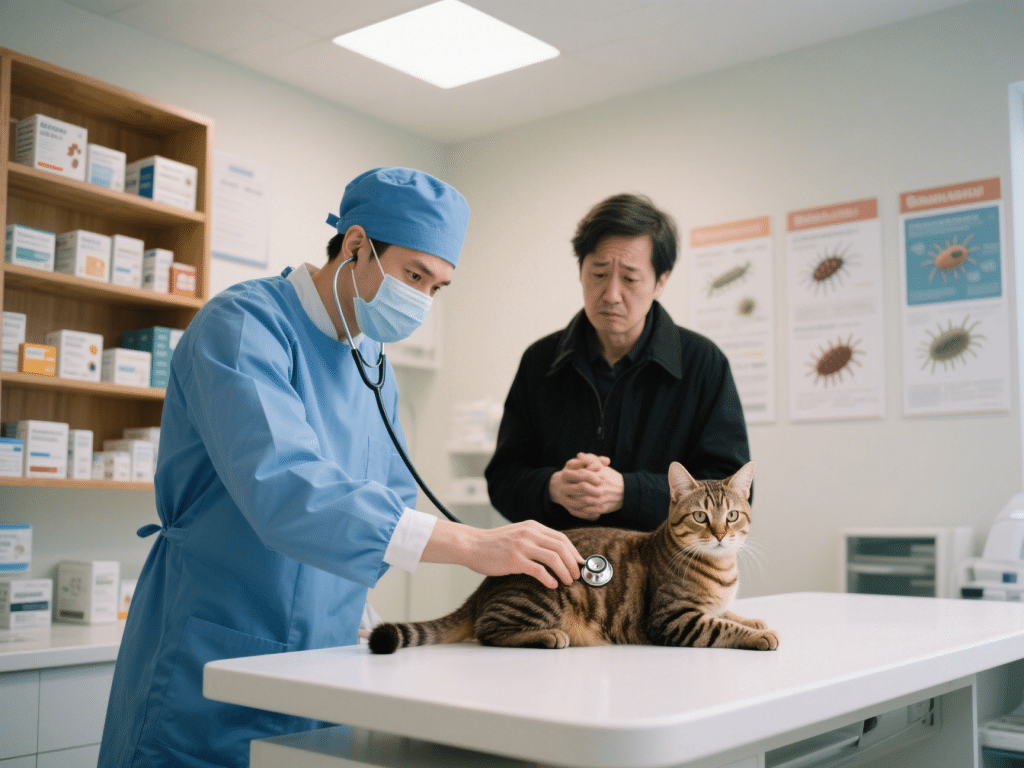
Top 10 Mistakes Cat Owners Make When Deworming (and How to Avoid Them)
Top 10 Mistakes Cat Owners Make When Deworming (and How to Avoid Them)Effective deworming is crucial...
Read More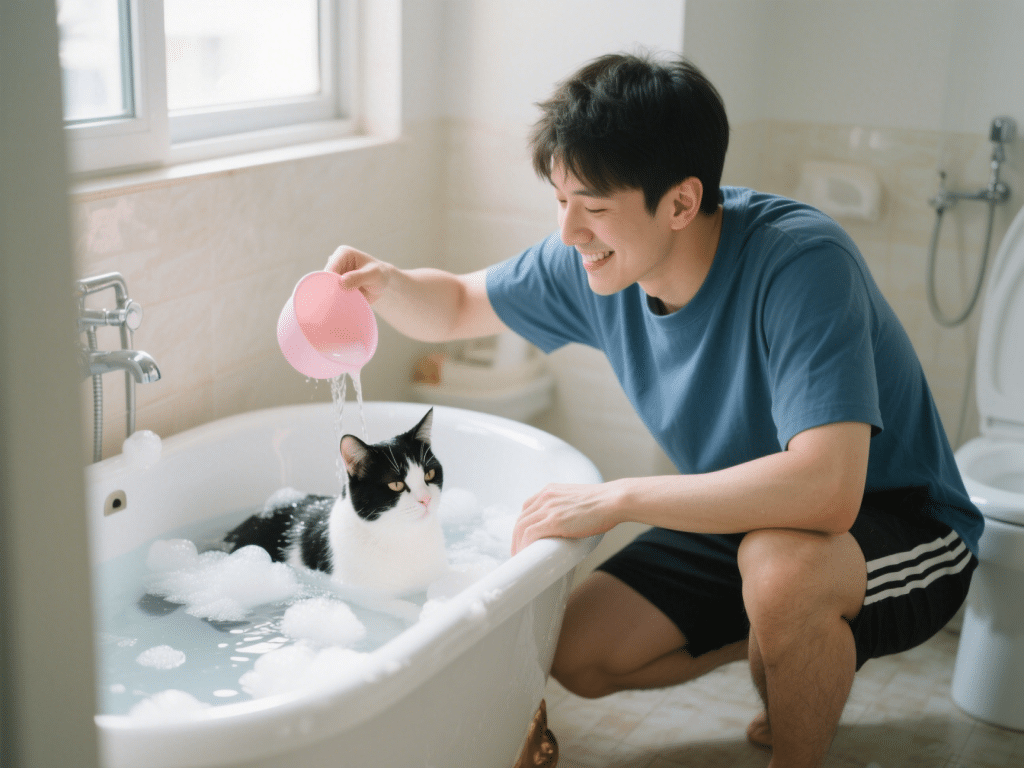
Can You Bathe a Cat Before or After Deworming? Timing and Best Practices
Title: Can You Bathe a Cat Before or After Deworming? Timing and Best PracticesIntroductionBath...
Read More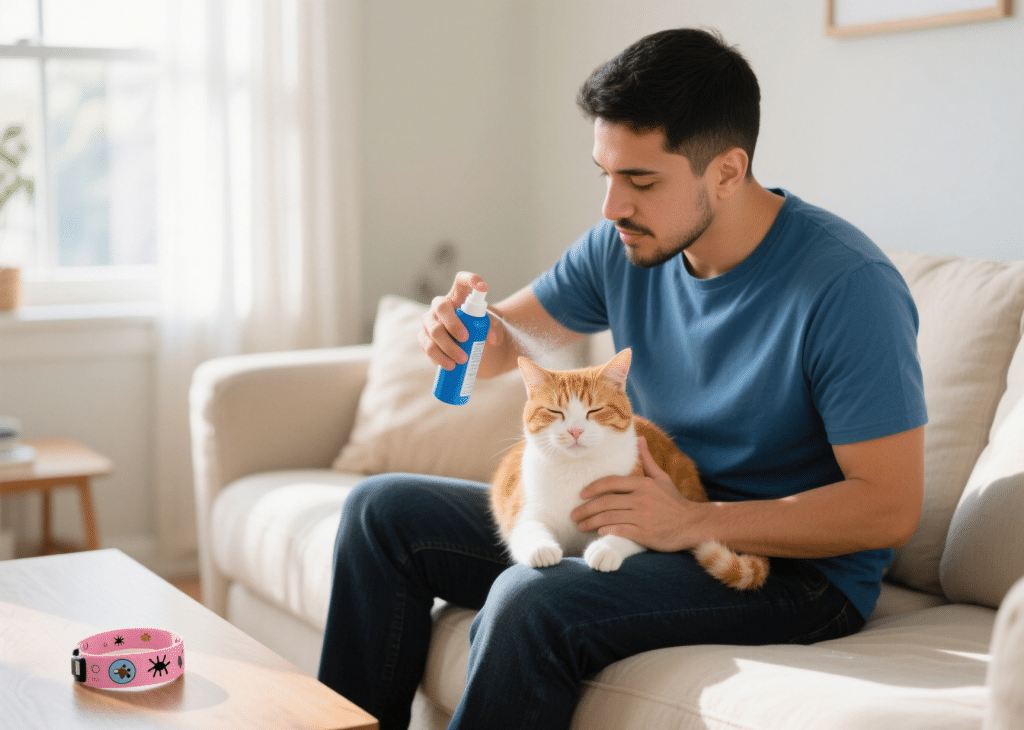
Deworming Cats Externally: Spot-On Treatments vs Collars vs Sprays
Deworming Cats Externally: Spot-On Treatments vs Collars vs SpraysIntroductionExternal parasites suc...
Read More
Indoor Cats and Worms: Common Myths and the Truth About Deworming
Indoor Cats and Worms: Common Myths and the Truth About DewormingMany cat owners believe that indoor...
Read More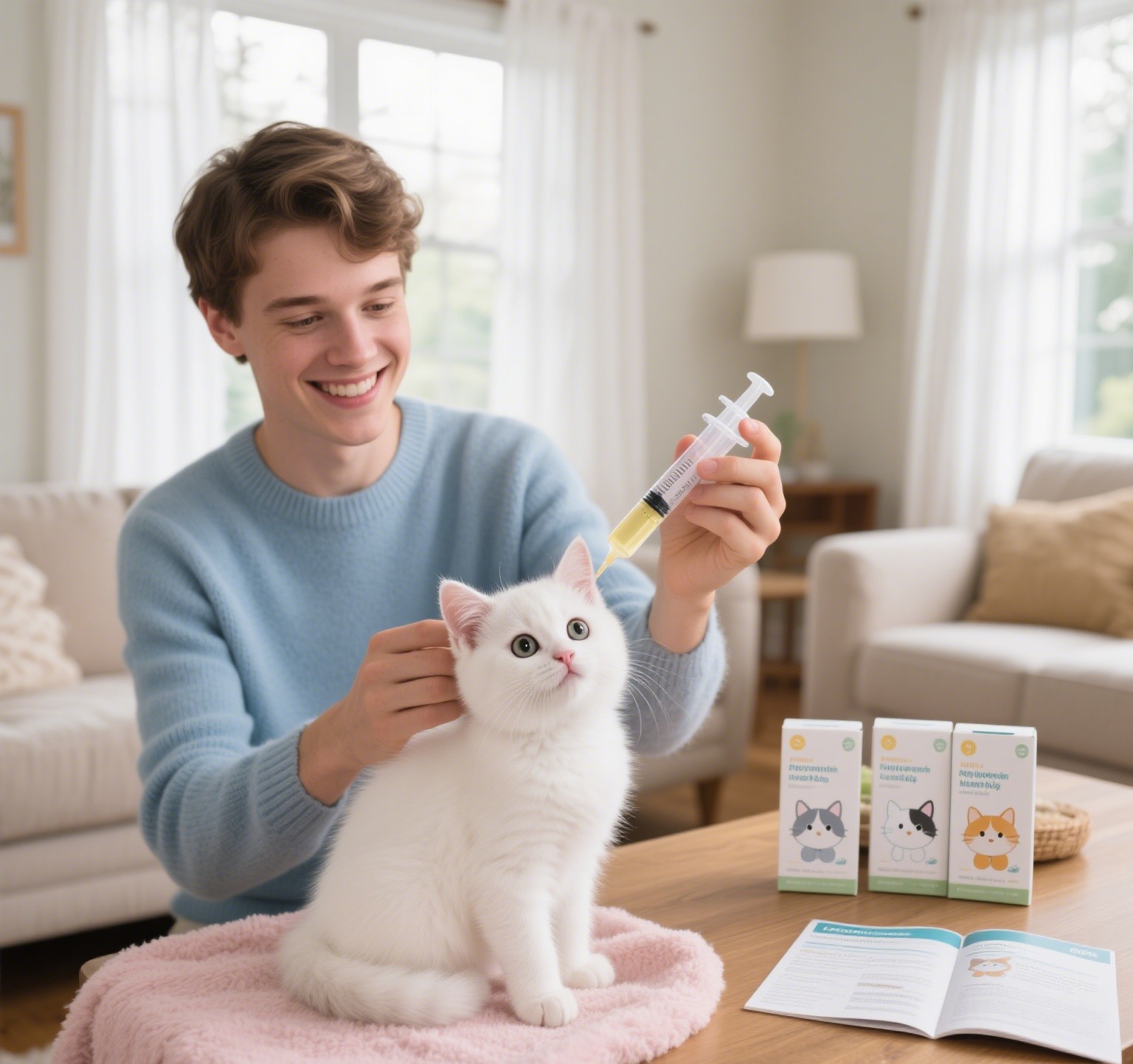
When Should You Start Deworming a Kitten? Best Products for Young Cats
When Should You Start Deworming a Kitten? Best Products for Young CatsDeworming is an essential part...
Read More